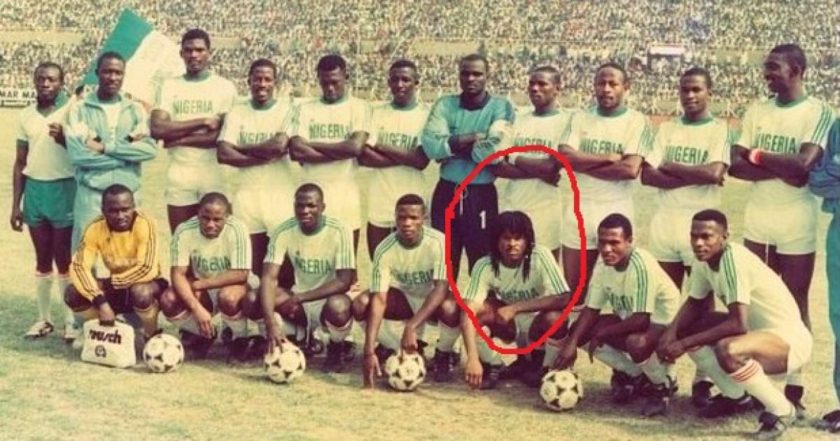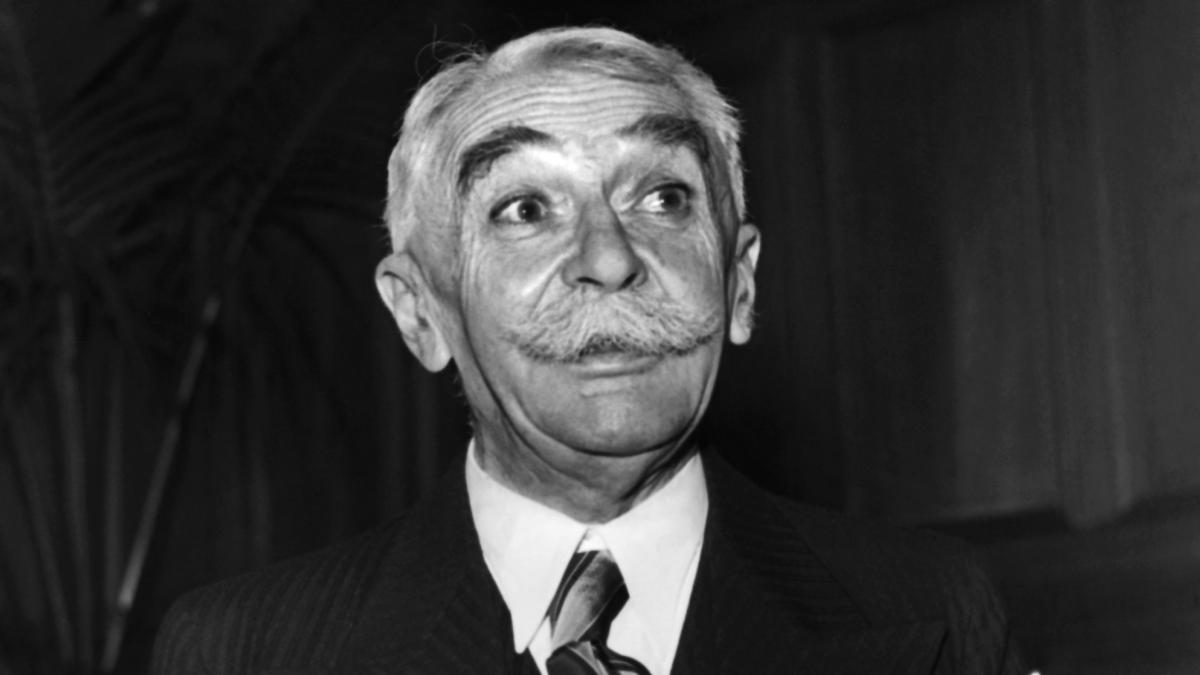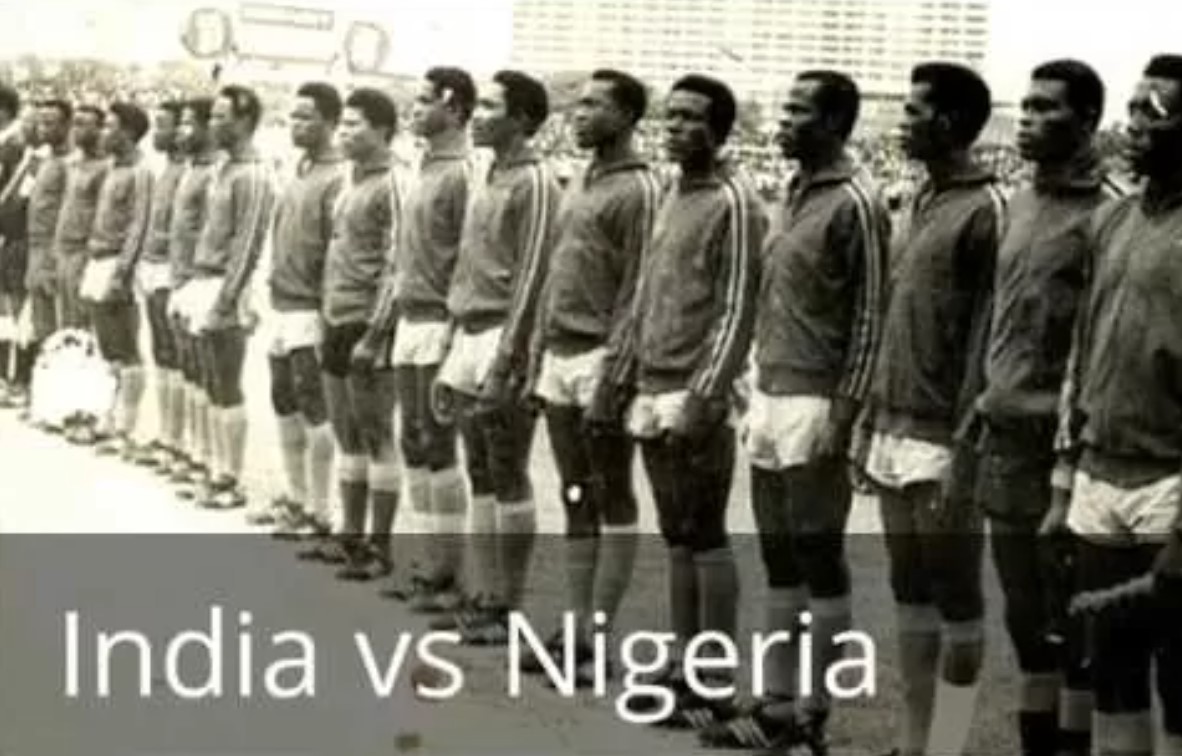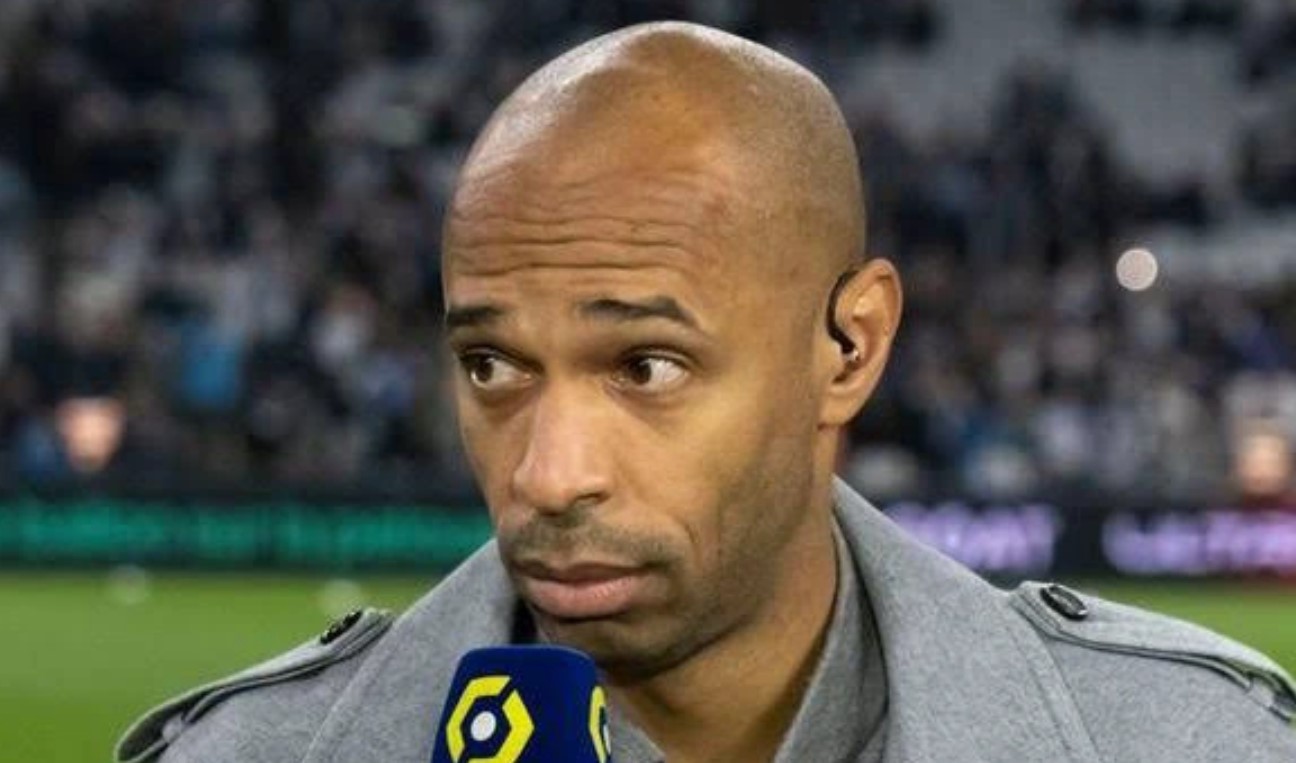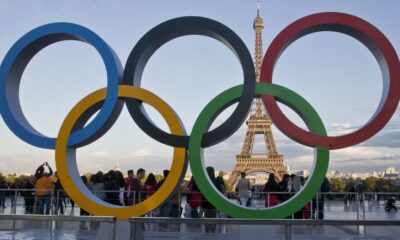Here you can listen to our WELT podcasts
In order to display embedded content, your revocable consent to the transmission and processing of personal data is necessary, since the providers of the embedded content as third-party providers require this consent [In diesem Zusammenhang können auch Nutzungsprofile (u.a. auf Basis von Cookie-IDs) gebildet und angereichert werden, auch außerhalb des EWR]. By setting the switch to “on”, you agree to this (revocable at any time). This also includes your consent to the transfer of certain personal data to third countries, including the USA, in accordance with Art. 49 (1) (a) GDPR. You can find more information about this at . You can revoke your consent at any time using the switch and via privacy at the bottom of the page.
It is a statue that is tottering on its pedestal. In his book “Pierre de Coubertin, l’homme qui n’inventa pas les Jeux” (“Pierre de Coubertin, the man who did not invent the Games”), Aymeric Mantoux tells the story of a man who – the word is weak – divides people far more than what the Olympic movement today wants to know about him.
WELT: Is Pierre de Coubertin a fraud?
Aymeric Mantoux: The idea of holding sporting competitions in several countries did not come from him. The name Olympic Games did not come from him. The slogans associated with the Olympic Games – “Faster, higher, stronger” (in German usage “sfaster, higher, further”, editor’s note) or “Taking part is everything” – and which are nevertheless considered iconic phrases, are not his. In reality, he is more than a fraud, he is an opportunist. He neither invented nor reinvented the Olympic Games, but simply adopted ideas that corresponded to the spirit of the times.
WELT: So what is his merit?
also read
Mantoux: Coubertin’s strength lies in the fact that he recognized before many others that sport is an extremely effective means of education and pedagogy. He had the vision that sport is a link between peoples. That is his merit. Secondly, he is a real lobbyist, in the modern sense of the word. He worked tirelessly in many areas to push through his ideas.
WELT: How did he get to the Olympic Games?
Mantoux: Coubertin grew up in a France that was badly scarred by the heavy defeat against Prussia in 1870. His entire work was initially aimed at helping France to regain its strength. Or how to get a nation of intellectuals who are sitting idle in their armchairs ready for battle through sport. Coubertin travelled a lot, met many people and had many exchanges. He was inspired by Greeks, English, Swedes and Germans to compile his doctrine over the years.
The most legendary Olympic moments of the last 60 years
Olympic history is rich in iconic scenes: Usain Bolt easily breaks the world record, the “Dream Team” enchants the fans and Michael Phelps becomes the “Lord of the Medals”. We look at the most legendary Olympic moments of the last 60 years.
WELT: In the collective imagination he is seen as a humanist peacemaker. But if you listen to them, he is first and foremost a warmonger.
Mantoux: At least at the beginning, Coubertin was animated by a nationalist and revanchist spirit. That is also the reason for the existence of the book. I have nothing against the Olympic Games or against Pierre de Coubertin. But I wanted to show the discrepancy between an aristocratic, elegant, green, humanist figure, as sold by the IOC, and the historical truth: Coubertin would not agree at all with the Olympic Games as they exist today. Take the Olympic truce, for example.
WELT: Is this just nonsense too?
Mantoux: It is a principle he introduced towards the end of his life, and it is not intended to advocate for world peace. Coubertin feared that the Olympic Games would disappear and be forgotten if they were prevented by war. The Olympic pledge has only one purpose: to ensure the continuation of his work.
This is what the first modern Olympic Games looked like
On April 6, 1896, the first modern Olympic Games began on the initiative of Pierre de Coubertin. With four gold medals, the German gymnast Carl Schuhmann was the most successful athlete.
WELT: The Olympic Games today pride themselves on their universalist aspirations. Is this really the spirit of Coubertin?
Mantoux: Quite the opposite. Coubertin was an aristocrat. At that time, sport was practiced by the elite, by him and his friends. They fence, they fly, they play tennis, they play golf. It is really only a small minority of the population that does sport to kill their free time. Sport for everyone is not his theme.
WELT: Is his misogyny a proven character trait?
Mantoux: Yes, he wrote only terrible things about women. He believed that women were unsuitable and unaesthetic for sport and that their role should be limited to handing out medals. In this respect, he is not only the product of an era, but also has very backward views on sport: this runs through his writings and is completely undisputed. At the end of his life, he nuanced his thoughts somewhat, but only to adapt to the spirit of the times.
WELT: According to your investigation, Coubertin was also an accomplice of the Nazis, but to what extent?
Mantoux: What is certain is that the 1936 Berlin Games, which brought glory to the Nazi regime, would not have taken place if Coubertin had opposed it. The Games were awarded to Hitler with Coubertin’s consent and blessing. It has also been noted that he had an extremely close relationship with the Nazi regime. What is often forgotten is that six months before the Berlin Games, the Winter Games were held in Garmisch-Partenkirchen. In fact, he awarded the Olympic Games to the Germans twice in the same year. READ FULL STORY HERE>>>CLICK HERE TO CONTINUE READING>>>
Coubertin speaks in January 1936 at the meeting of the Swiss Olympic Committee before the games in Garmisch and Berlin
Quelle: picture alliance/KEYSTONE/EUGEN SUTER
WELT: But he was no longer President of the IOC at that time.
Mantoux: Officially he was not. But he remained honorary president of the IOC for life. It is proven that his influence was still considerable; for example, he himself chose his successor. Six months before his death, Coubertin wrote to Hitler: “Bravo for your games.”
Hitler in 1936 at a reception for all German medal winners in the Reich Chancellery
Quelle: picture alliance/SZ Photo/Scherl
WELT: You also found an unpublished letter from this time. What is the context of this letter?
Mantoux: Hitler had realized that Coubertin had become an extremely strong moral authority. Hitler asked Coubertin to publicly support the Nazi Games by recording a message of support on the radio that was broadcast in the stadium during the opening of the 1936 Games. Coubertin, for his part, used Hitler to make the 1936 Games special and to keep the memory of his work alive. Coubertin had only one goal: to keep the Olympic Games, which he had successfully created, alive at all costs. Coubertin and Hitler were two opportunists: thanks to Hitler, Coubertin’s Games survived, and thanks to Coubertin, Hitler could forget about the boycott threats.
WELT: Where did the boycott threats come from?
Mantoux: The Nazi Games were contested by a number of Jewish associations, especially in the USA. The Berlin Games almost didn’t take place because by the mid-1930s many people in Europe were already aware of the Nazis’ machinations. And Coubertin, who read a lot, was of course aware of it. I have analyzed all the press articles from those years in France, Switzerland, England and Germany, and all these challenges are made clear. You can’t say that Coubertin didn’t know anything.
WELT: Did Coubertin and Hitler have a common vision?
Mantoux: All of Coubertin’s ideas about the aesthetics of the body are reflected in Hitler’s writings. There is a real ideological proximity, at least as far as the philosophy of sport is concerned. Coubertin saw the Nazis as an extremely successful implementation of some of his ideas.
also read
Oldest Olympic witness
WELT: Do you think Coubertin knew about Hitler’s plans?
Mantoux: Again, Coubertin was first and foremost an intellectual. And what do intellectuals do? They read, meet with people and discuss things. So you can’t imagine that Coubertin didn’t read Mein Kampf, for example. And in Mein Kampf it’s very clear. Hitler wants to make Germany a great nation again, regardless of whether that’s at the expense of others.
“Anti-sex beds” made of cardboard and no air conditioning – hard times for athletes
WELT: Are there any other traces from this period in the IOC archives?
Mantoux: The IOC will tell you that there are no archives from those years. That seems particularly suspicious to me, while the other periods are well documented.
WELT: The Paris Olympics are very cautious about references to Coubertin, even though he is the leading figure in French sport. Because of his past?
Mantoux: Quite obviously. His name is not mentioned once on the Paris 2024 website. Again, no one is being fooled. I think Macron has enough problems not to saddle himself with a polemic about Coubertin, and most French heads of state have always distanced themselves from the person of Coubertin. When General de Gaulle was asked whether Coubertin should be pantheonized, that is, reburied in France’s national hall of fame, he replied with a laugh: “But that’s not Jean Moulin.”(Moulin was an important leader of the French Resistance during World War II, editor’s note)
In cooperation with the “Tribune de Genève”.
Related

